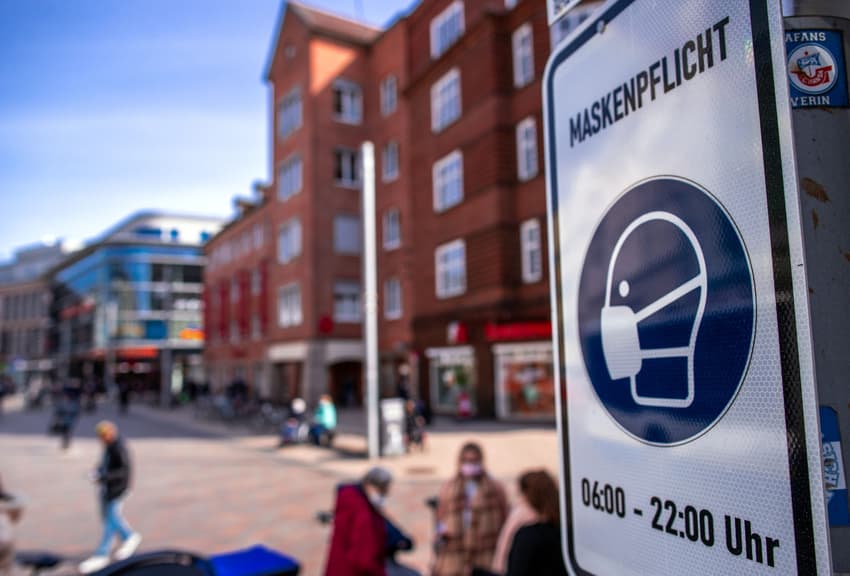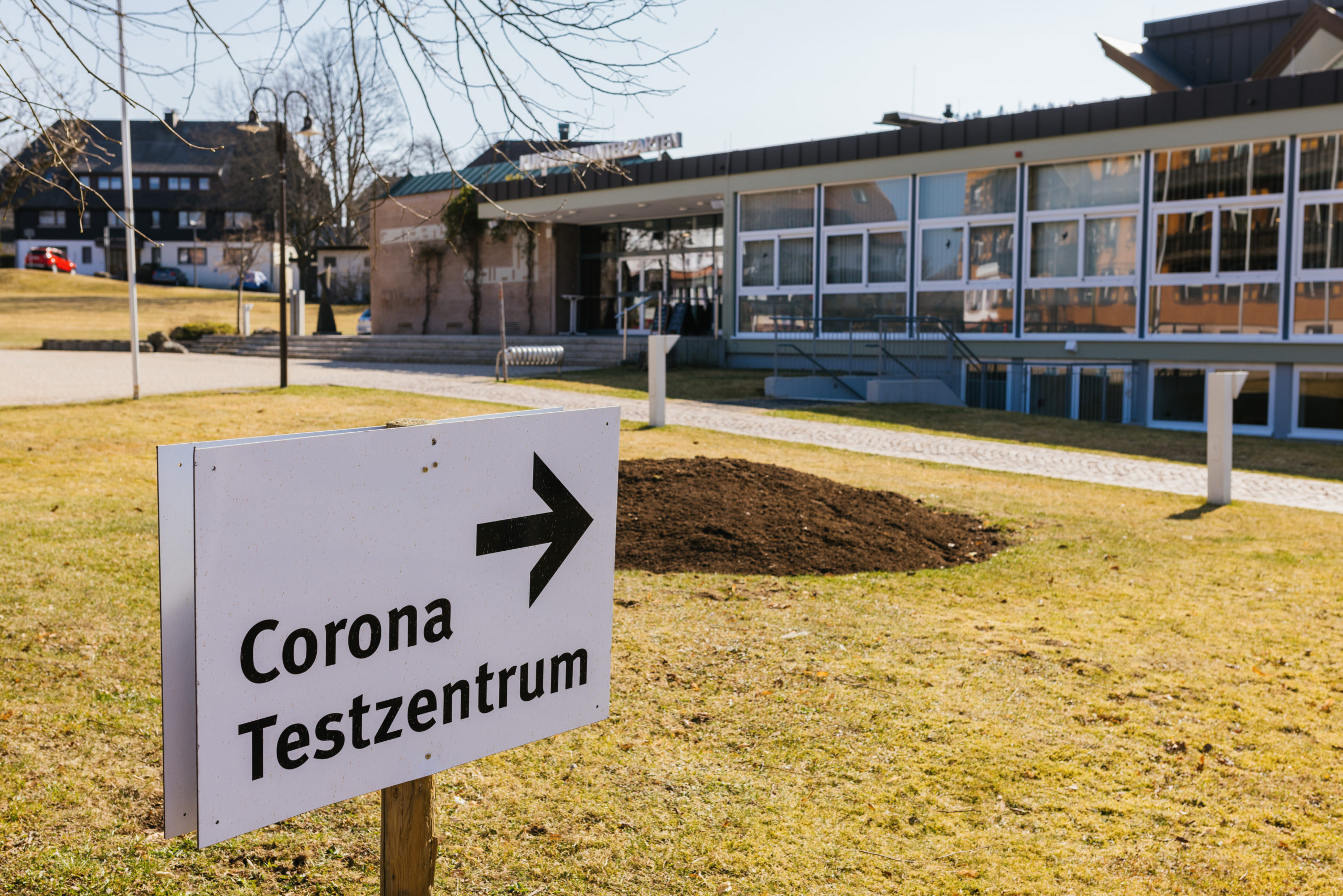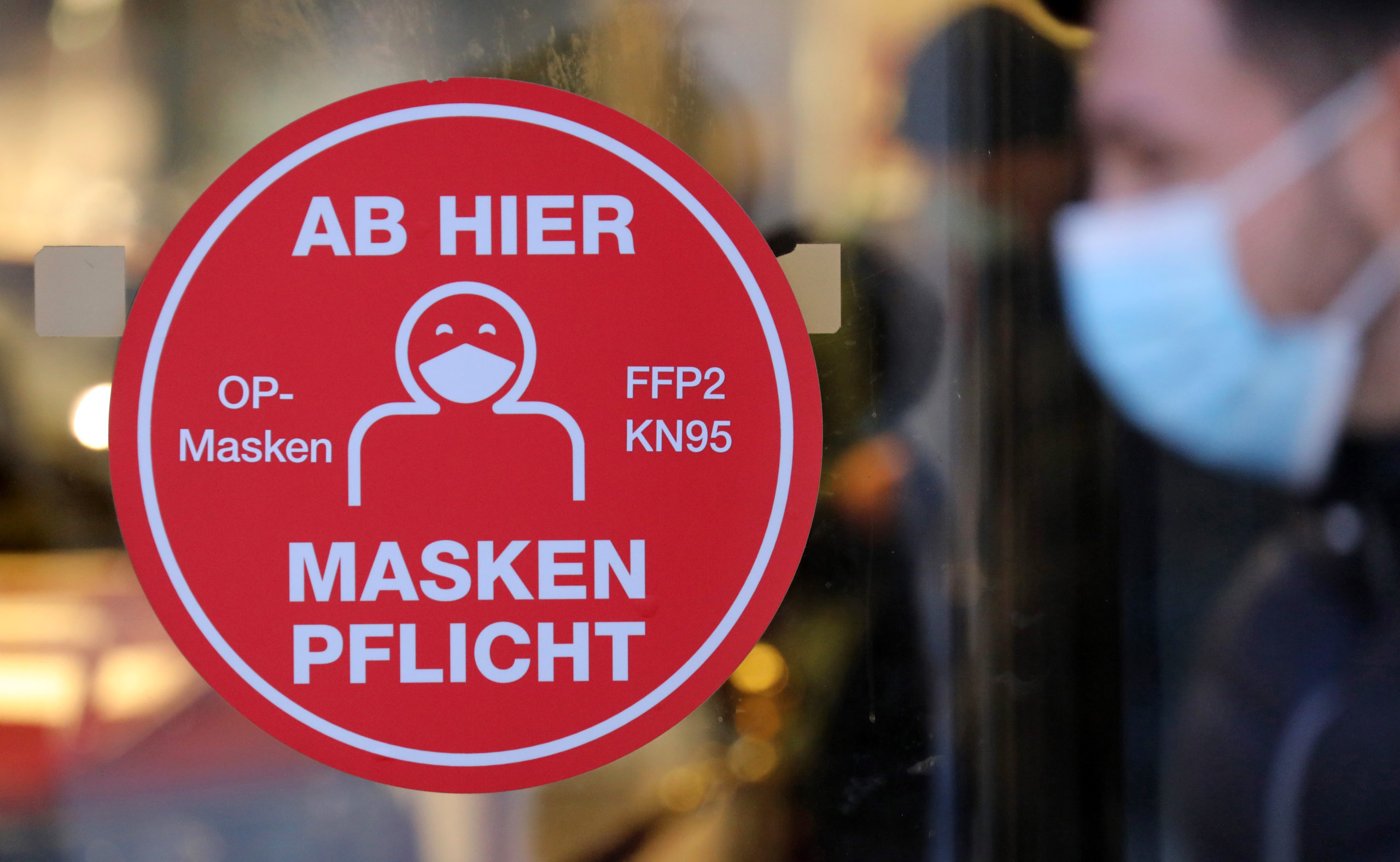KEY POINTS: The Covid rules you still need to know in Germany

The transition period for the previous version of the Infection Protection Act has expired, bringing with it the end of most Covid restrictions in Germany. Here are the measures you still need to know about.
Over the past year or so, the 'G' rules mandating proof of vaccination, a booster, negative test or recovery certificate have become a regular part of life in Germany. For a while, unvaccinated people had to grow accustomed to a more restricted lifestyle or needing to test regularly to go to bars, shops and gyms. Vaccinated people, meanwhile, always had their phones at the ready, preparing for the inevitable "Impfnachweis, bitte!" (Vaccine pass, please!) as they entered pubs and restaurants.
Since the transition period for the last set of Covid rules ended on Sunday, however, an end of an era is upon us. All of the 'G' rules have completely fallen away, meaning people can go about their normal lives regardless of whether they've had their jabs or a recent test. Two states have opted to keep things like 3G and 2G for now, but for the vast majority of people, the vaccine pass and recovery certificate are a thing of the past (at least for now).
Another victim of the most recent changes to the Covid rules is capacity limits - so sports and cultural venues will now be able to fill their seats just as they used to do before the pandemic. And there's also no legal requirement for employers to allow working from home.
But with all of the major changes, some important measures still need to be observed. Here's what you need to know.
Masks on public transport and in hospitals
Though masks are no longer required in shops, restaurants and other public venues, people are still expected to cover their mouth and nose while travelling on public transport. That includes local buses, trams and trains as well as long-distance trains and flights.
Most transport companies, including Deutsche Bahn, ask customers to wear a medical mask such as an FPP2 mask.
Masks will also continue to be part of basic protection measures in places where you might encounter vulnerable people: clinics, hospitals and care homes all fall under this category.
It's also worth being aware of the fact that the owners of supermarkets, gyms, hotels and catering businesses may decide to set their own rules.
In fact, Health Minister Karl Lauterbach (SPD) has actively encouraged them to do so. So while most of the major retailers are opting to dispense with masks, it's believed that Netto, DM and Rossmann will be among the brands that will continue to require them.
READ ALSO: What are Germany’s new Covid mask rules?
Testing
While 'G' rules have generally been scrapped across the country, there are still some places you might need a test.
According to the latest version of the Infection Protection Act, the managers of hospitals, care homes and "shared accommodation" (i.e. prisons) will have to keep some kind of testing concept in place, which will mean that visitors and staff still require tests.
For residents of nursing homes or prisons, local health authorities will be able to decide when tests are needed - for example, when there's evidence of an outbreak or a swell in infections. The testing requirement for staff and visitors can be replaced with a '3G' rule, so you may find a hospital or care home asking for a vaccination or recovery certificate in lieu of a test.
Tests are also likely to continue in most schools around the country, though states are allowed some leeway on this.

A test centre in Hinterzarten, Baden-Württemberg. Photo: picture alliance/dpa | Philipp von Ditfurth
In the workplace, almost all government-mandated rules will end, but employers will have the freedom to define their own hygiene concepts. That could involve wearing masks, keeping distance or testing regularly - though if your employer decides to do this they will have to provide masks and tests free of charge.
Local testing centres will continue to offer free Bürgertests to residents and tourists until the end of May.
Quarantine
For the time being at least, the current quarantine rules for people who have close contact with a Covid-infected person, or people who have Covid, remain in place.
In essence, that means up to 10 days of quarantine for anyone who tests positive for Covid (or seven with a negative test) and the same for double-vaccinated or unvaccinated people who have contact with someone infected with Covid.
READ ALSO: EXPLAINED: Germany’s rules and exceptions for Covid quarantine
If you've have your booster or a second vaccine shot within the past three months, you won't have to quarantine if you've spent time with a Covid-infected person. However, everyone has to self-isolate following a negative test result.
Travel rules
The government has shaken up its travel rules recently, removing all countries from the Robert Koch Institute's infamous "risk list". Nevertheless, the basic requirement to furnish proof remains in place.
That means you'll need your negative test result, recovery certificate or vaccine pass at the ready when returning to the country after a trip abroad, even if you're travelling by road.
READ ALSO: What to expect if you’re travelling to Germany this Easter
Covid 'hotspots'
So far, two German states have opted to take advantage of a clause in the new Infection Protection Act that allows them to declare themselves "hotspots" and keep many of their previous Covid rules in place.
In Mecklenburg Western-Pomerania, most public venues still operate with a 3G entry policy (tests, vaccination or recovery) and masks, or a 2G policy (vaccinated and recovered only) without masks. In most indoor spaces - including supermarkets - masks are still mandatory.

A sign outside a shopping centre in Schwerin, Mecklenburg Western-Pomerania, advises customers to wear masks indoors. Photo: picture alliance/dpa/dpa-Zentralbild | Bernd Wüstneck
In addition, a 2G-plus rule (vaccination and booster or a negative test) is still needed to get into nightclubs. According to a recent statement, state officials plan to meet on Tuesday to discuss whether any of these rules should be relaxed in the near future.
The other state that has kept many rules in place is the northern city-state of Hamburg. Here, masks will still be required in the majority of indoor public venues like bars, restaurants, shops and leisure centres, and 2G-plus rules will apply in clubs and discos. This will apply until April 30th.
READ ALSO: The ‘hotspot’ states keeping Covid rules as restrictions end across rest of Germany
Comments (1)
See Also
Over the past year or so, the 'G' rules mandating proof of vaccination, a booster, negative test or recovery certificate have become a regular part of life in Germany. For a while, unvaccinated people had to grow accustomed to a more restricted lifestyle or needing to test regularly to go to bars, shops and gyms. Vaccinated people, meanwhile, always had their phones at the ready, preparing for the inevitable "Impfnachweis, bitte!" (Vaccine pass, please!) as they entered pubs and restaurants.
Since the transition period for the last set of Covid rules ended on Sunday, however, an end of an era is upon us. All of the 'G' rules have completely fallen away, meaning people can go about their normal lives regardless of whether they've had their jabs or a recent test. Two states have opted to keep things like 3G and 2G for now, but for the vast majority of people, the vaccine pass and recovery certificate are a thing of the past (at least for now).
Another victim of the most recent changes to the Covid rules is capacity limits - so sports and cultural venues will now be able to fill their seats just as they used to do before the pandemic. And there's also no legal requirement for employers to allow working from home.
But with all of the major changes, some important measures still need to be observed. Here's what you need to know.
Masks on public transport and in hospitals
Though masks are no longer required in shops, restaurants and other public venues, people are still expected to cover their mouth and nose while travelling on public transport. That includes local buses, trams and trains as well as long-distance trains and flights.
Most transport companies, including Deutsche Bahn, ask customers to wear a medical mask such as an FPP2 mask.
Masks will also continue to be part of basic protection measures in places where you might encounter vulnerable people: clinics, hospitals and care homes all fall under this category.
It's also worth being aware of the fact that the owners of supermarkets, gyms, hotels and catering businesses may decide to set their own rules.
In fact, Health Minister Karl Lauterbach (SPD) has actively encouraged them to do so. So while most of the major retailers are opting to dispense with masks, it's believed that Netto, DM and Rossmann will be among the brands that will continue to require them.
READ ALSO: What are Germany’s new Covid mask rules?
Testing
While 'G' rules have generally been scrapped across the country, there are still some places you might need a test.
According to the latest version of the Infection Protection Act, the managers of hospitals, care homes and "shared accommodation" (i.e. prisons) will have to keep some kind of testing concept in place, which will mean that visitors and staff still require tests.
For residents of nursing homes or prisons, local health authorities will be able to decide when tests are needed - for example, when there's evidence of an outbreak or a swell in infections. The testing requirement for staff and visitors can be replaced with a '3G' rule, so you may find a hospital or care home asking for a vaccination or recovery certificate in lieu of a test.
Tests are also likely to continue in most schools around the country, though states are allowed some leeway on this.

In the workplace, almost all government-mandated rules will end, but employers will have the freedom to define their own hygiene concepts. That could involve wearing masks, keeping distance or testing regularly - though if your employer decides to do this they will have to provide masks and tests free of charge.
Local testing centres will continue to offer free Bürgertests to residents and tourists until the end of May.
Quarantine
For the time being at least, the current quarantine rules for people who have close contact with a Covid-infected person, or people who have Covid, remain in place.
In essence, that means up to 10 days of quarantine for anyone who tests positive for Covid (or seven with a negative test) and the same for double-vaccinated or unvaccinated people who have contact with someone infected with Covid.
READ ALSO: EXPLAINED: Germany’s rules and exceptions for Covid quarantine
If you've have your booster or a second vaccine shot within the past three months, you won't have to quarantine if you've spent time with a Covid-infected person. However, everyone has to self-isolate following a negative test result.
Travel rules
The government has shaken up its travel rules recently, removing all countries from the Robert Koch Institute's infamous "risk list". Nevertheless, the basic requirement to furnish proof remains in place.
That means you'll need your negative test result, recovery certificate or vaccine pass at the ready when returning to the country after a trip abroad, even if you're travelling by road.
READ ALSO: What to expect if you’re travelling to Germany this Easter
Covid 'hotspots'
So far, two German states have opted to take advantage of a clause in the new Infection Protection Act that allows them to declare themselves "hotspots" and keep many of their previous Covid rules in place.
In Mecklenburg Western-Pomerania, most public venues still operate with a 3G entry policy (tests, vaccination or recovery) and masks, or a 2G policy (vaccinated and recovered only) without masks. In most indoor spaces - including supermarkets - masks are still mandatory.

In addition, a 2G-plus rule (vaccination and booster or a negative test) is still needed to get into nightclubs. According to a recent statement, state officials plan to meet on Tuesday to discuss whether any of these rules should be relaxed in the near future.
The other state that has kept many rules in place is the northern city-state of Hamburg. Here, masks will still be required in the majority of indoor public venues like bars, restaurants, shops and leisure centres, and 2G-plus rules will apply in clubs and discos. This will apply until April 30th.
READ ALSO: The ‘hotspot’ states keeping Covid rules as restrictions end across rest of Germany
Join the conversation in our comments section below. Share your own views and experience and if you have a question or suggestion for our journalists then email us at [email protected].
Please keep comments civil, constructive and on topic – and make sure to read our terms of use before getting involved.
Please log in here to leave a comment.